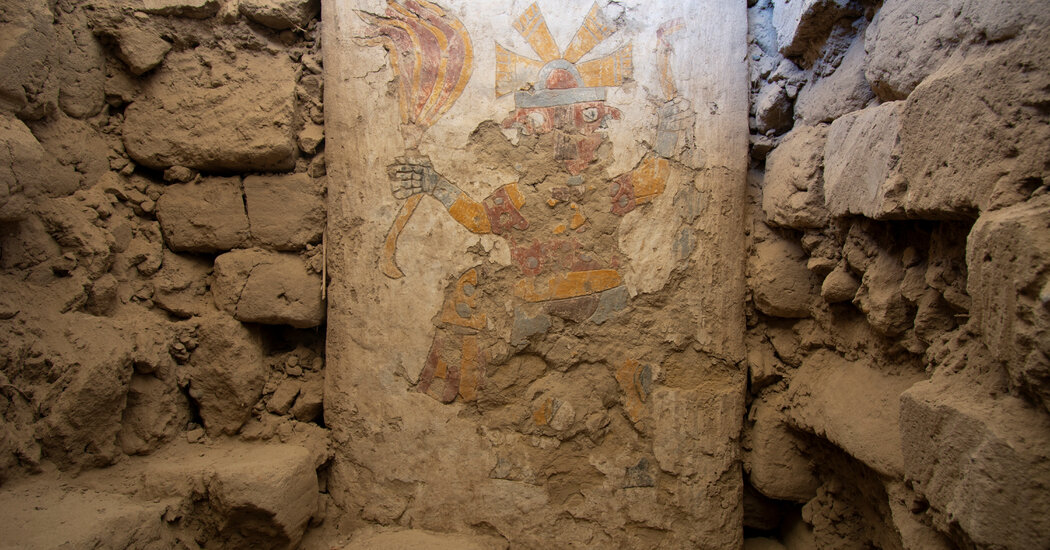Archaeologists have unearthed a richly decorated throne room and a “Hall of the Braided Serpents” from the Moche culture, with clues that a woman may have ruled there more than 1,300 years ago.
Archaeologists in Peru have excavated a monumental chamber featuring elaborate murals of snakes, and a pillared hall with a worn throne, which they say bears clues suggesting a powerful woman ruled there more than 1,300 years ago.
The site, Pañamarca, was a religious and political center for the ancient Moche culture, which flourished for centuries in northern Peru, building grand structures and irrigating deserts long before the Inca rose and conquered the Andes.
The latest findings, reported by a team of researchers late last month, provide new insight into Moche ceremonies and mythology, and add to growing evidence that women held positions of power in Moche society, in contrast to long-held perceptions of a culture dominated by male warriors and kings.
“There are several things that are very important regarding this wonderful discovery,” said Gabriela Cervantes Quequezana, an archaeologist not involved in the excavations. “We’ve seen other representations of women in tombs, but not in the depth and complexity in the discoveries in Pañamarca.”
The throne room is decorated with paintings that depict a woman seated on a similar throne and receiving visitors, as well as images of a crown, the crescent moon, sea creatures and a weaving workshop. The throne itself, which was built around A.D. 650, shows erosion on the backrest, suggesting the wear of a person sitting there, and the researchers found colorful stones and human hair embedded in it.
“It’s very unusual for us to see the crowned woman seated on a throne inside a building holding court,” said Lisa Trever, a professor of art history and archaeology at Columbia University and one of the Pañamarca researchers. “I think we can say with some certainty that, regardless of who actually sat there, it was a throne for a queen, the throne for a woman.”
